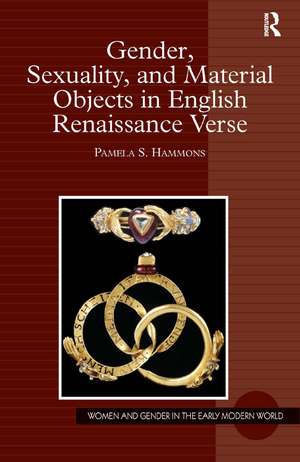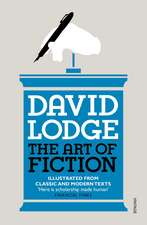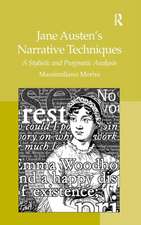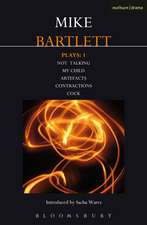Gender, Sexuality, and Material Objects in English Renaissance Verse: Women and Gender in the Early Modern World
Autor Pamela S. Hammonsen Limba Engleză Hardback – 28 mai 2010
| Toate formatele și edițiile | Preț | Express |
|---|---|---|
| Paperback (1) | 240.89 lei 6-8 săpt. | |
| Taylor & Francis – 14 oct 2024 | 240.89 lei 6-8 săpt. | |
| Hardback (1) | 934.94 lei 3-5 săpt. | +20.62 lei 6-10 zile |
| Taylor & Francis – 28 mai 2010 | 934.94 lei 3-5 săpt. | +20.62 lei 6-10 zile |
Din seria Women and Gender in the Early Modern World
- 9%
 Preț: 1003.31 lei
Preț: 1003.31 lei -
 Preț: 289.10 lei
Preț: 289.10 lei - 19%
 Preț: 364.64 lei
Preț: 364.64 lei - 8%
 Preț: 383.57 lei
Preț: 383.57 lei - 9%
 Preț: 936.16 lei
Preț: 936.16 lei -
 Preț: 223.84 lei
Preț: 223.84 lei - 18%
 Preț: 1054.71 lei
Preț: 1054.71 lei - 18%
 Preț: 1000.27 lei
Preț: 1000.27 lei - 18%
 Preț: 1054.71 lei
Preț: 1054.71 lei - 18%
 Preț: 1055.06 lei
Preț: 1055.06 lei - 18%
 Preț: 1000.27 lei
Preț: 1000.27 lei - 25%
 Preț: 497.08 lei
Preț: 497.08 lei - 18%
 Preț: 1000.27 lei
Preț: 1000.27 lei -
 Preț: 369.73 lei
Preț: 369.73 lei - 18%
 Preț: 1056.63 lei
Preț: 1056.63 lei - 25%
 Preț: 826.01 lei
Preț: 826.01 lei - 25%
 Preț: 768.30 lei
Preț: 768.30 lei - 18%
 Preț: 1053.92 lei
Preț: 1053.92 lei - 26%
 Preț: 764.20 lei
Preț: 764.20 lei - 26%
 Preț: 764.20 lei
Preț: 764.20 lei - 18%
 Preț: 1001.84 lei
Preț: 1001.84 lei - 26%
 Preț: 819.48 lei
Preț: 819.48 lei - 18%
 Preț: 1113.63 lei
Preț: 1113.63 lei -
 Preț: 369.73 lei
Preț: 369.73 lei - 16%
 Preț: 234.90 lei
Preț: 234.90 lei - 18%
 Preț: 1061.81 lei
Preț: 1061.81 lei - 25%
 Preț: 766.85 lei
Preț: 766.85 lei - 18%
 Preț: 1060.25 lei
Preț: 1060.25 lei - 26%
 Preț: 734.75 lei
Preț: 734.75 lei - 18%
 Preț: 1061.81 lei
Preț: 1061.81 lei - 25%
 Preț: 767.07 lei
Preț: 767.07 lei - 25%
 Preț: 769.92 lei
Preț: 769.92 lei - 18%
 Preț: 1058.69 lei
Preț: 1058.69 lei - 18%
 Preț: 1061.06 lei
Preț: 1061.06 lei - 26%
 Preț: 878.57 lei
Preț: 878.57 lei - 18%
 Preț: 1064.70 lei
Preț: 1064.70 lei - 18%
 Preț: 1107.61 lei
Preț: 1107.61 lei - 26%
 Preț: 736.38 lei
Preț: 736.38 lei - 18%
 Preț: 1068.15 lei
Preț: 1068.15 lei - 18%
 Preț: 1061.06 lei
Preț: 1061.06 lei - 18%
 Preț: 1000.76 lei
Preț: 1000.76 lei - 26%
 Preț: 819.84 lei
Preț: 819.84 lei - 18%
 Preț: 1109.18 lei
Preț: 1109.18 lei - 26%
 Preț: 821.53 lei
Preț: 821.53 lei - 18%
 Preț: 1000.27 lei
Preț: 1000.27 lei - 25%
 Preț: 827.76 lei
Preț: 827.76 lei
Preț: 934.94 lei
Preț vechi: 1027.40 lei
-9% Nou
Puncte Express: 1402
Preț estimativ în valută:
178.92€ • 184.84$ • 148.91£
178.92€ • 184.84$ • 148.91£
Carte disponibilă
Livrare economică 05-19 martie
Livrare express 18-22 februarie pentru 30.61 lei
Preluare comenzi: 021 569.72.76
Specificații
ISBN-13: 9780754668992
ISBN-10: 0754668991
Pagini: 238
Dimensiuni: 156 x 234 x 14 mm
Greutate: 0.45 kg
Ediția:1
Editura: Taylor & Francis
Colecția Routledge
Seria Women and Gender in the Early Modern World
Locul publicării:Oxford, United Kingdom
ISBN-10: 0754668991
Pagini: 238
Dimensiuni: 156 x 234 x 14 mm
Greutate: 0.45 kg
Ediția:1
Editura: Taylor & Francis
Colecția Routledge
Seria Women and Gender in the Early Modern World
Locul publicării:Oxford, United Kingdom
Public țintă
AcademicCuprins
Contents: Introduction: his and hers; Part I Love Tokens: Robert Herrick's gift trouble; Women's poetic portraits of love tokens in heteroerotic courtship; Women's poetic portraits of love tokens in same-sex and divine relationships. Part II Houses and Land: The gendered imagination of real property in Renaissance England; Margaret Cavendish's disguised possession; Lucy Hutchinson's polluted palaces and ekphrastic empire; Conclusion; Bibliography; Index.
Notă biografică
Pamela S. Hammons is an associate professor of English at the University of Miami, USA.
Recenzii
'...an exceptionally strong strong study of seventeenth century British poetry and its important-even crucial-relationship to a still larger, richer discourse of subjects and obects, gifts and debts, owners and renters, sovereigns and petitioners which informed the early modern worlds of economies and politics, organized an emerging print culture, and shaped many ideas about sexuality and gender.' Elizabeth Mazzola, The City College of New York, USA and author of Women's Wealth and Women's Writing in Early Modern England 'Pamela Hammons's book is a well-researched contribution to the growing list of works that strive to understand women's position in early modern culture as well as the literary landscape of that culture.'Clio '... Hammons offers an insightful consideration of the ways that early modern male and female authors conceptualize and present their relationship to important small items and to larger possessions, such as houses or land. It illuminates our understanding of both poetry and of material culture in early modern England and offers a valuable range of texts and objects that interact in ways that will inform future scholarship.' Renaissance Studies '... this is a lovely book that repeatedly reminds us of the many and insoluble ties that early modern poetry had to England's rich material culture.' Journal of British Studies '... Hammons's study successfully reveals ways in which early modern English poetry, despite thematic and stylistic overlap, presents a definite and defining gender divide. This divide illustrates the patriarchal perspectives and anxieties regarding female agency evident in poetry by male authors, as well as the tactics of women poets to give voice to independent, subjective identities, and economic agency, or female aspiration to such dominated positions of material ownership.' Parergon '...Hammons deftly finds surprising things to say instead of just validating the quality of women's writings...Hammons' books should be laud
Descriere
An important contribution to recent critical discussions about gender, sexuality, and material culture in Renaissance England, this study analyzes female- and male-authored lyrics to illuminate how gender and sexuality inflected sixteenth- and seventeenth-century poets' conceptualization of relations among people and things, human and non-human subjects and objects. Pamela Hammons examines lyrics from both manuscript and print collections and situates them in relation to legal theories, autobiographies, biographies, plays, and epics.











